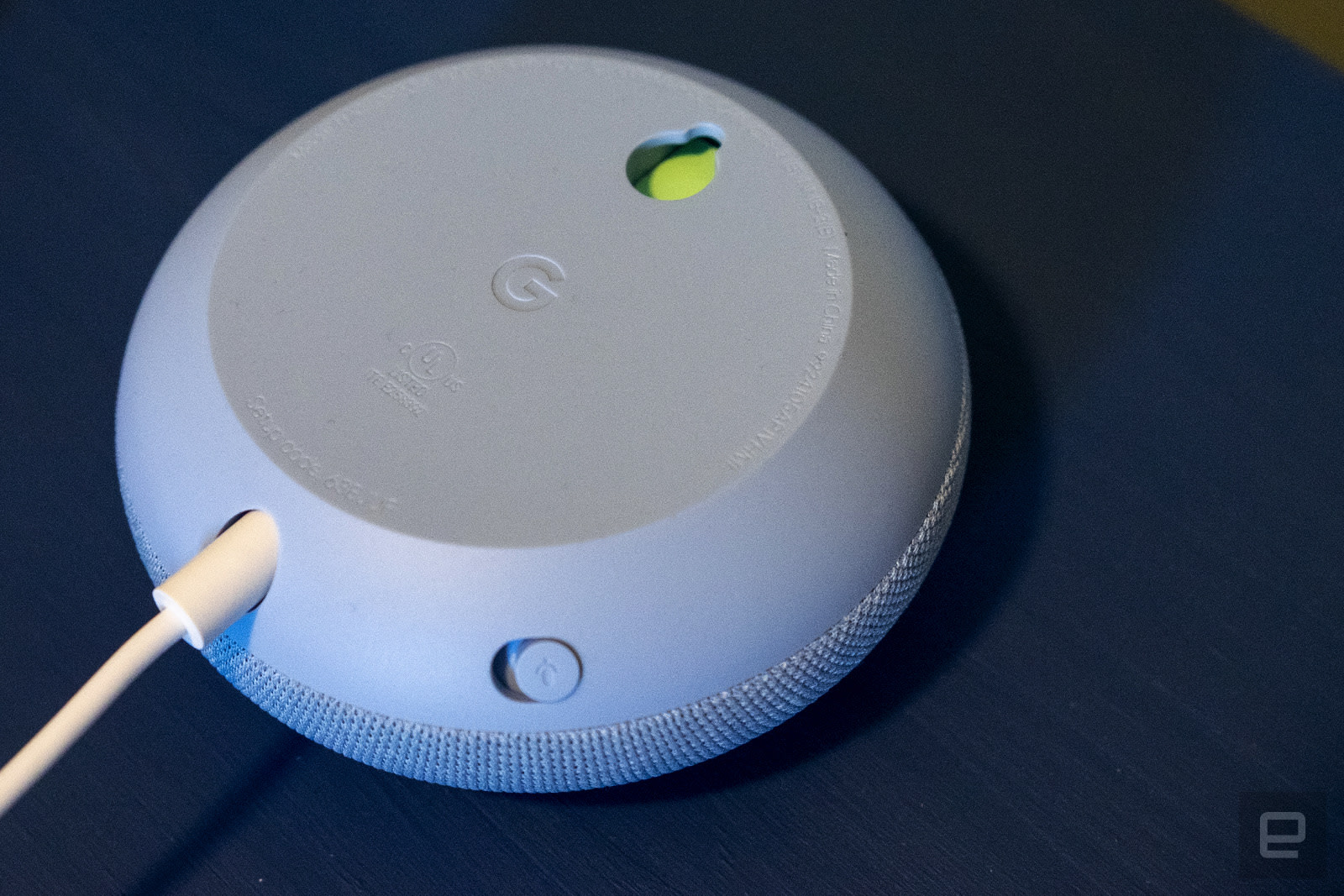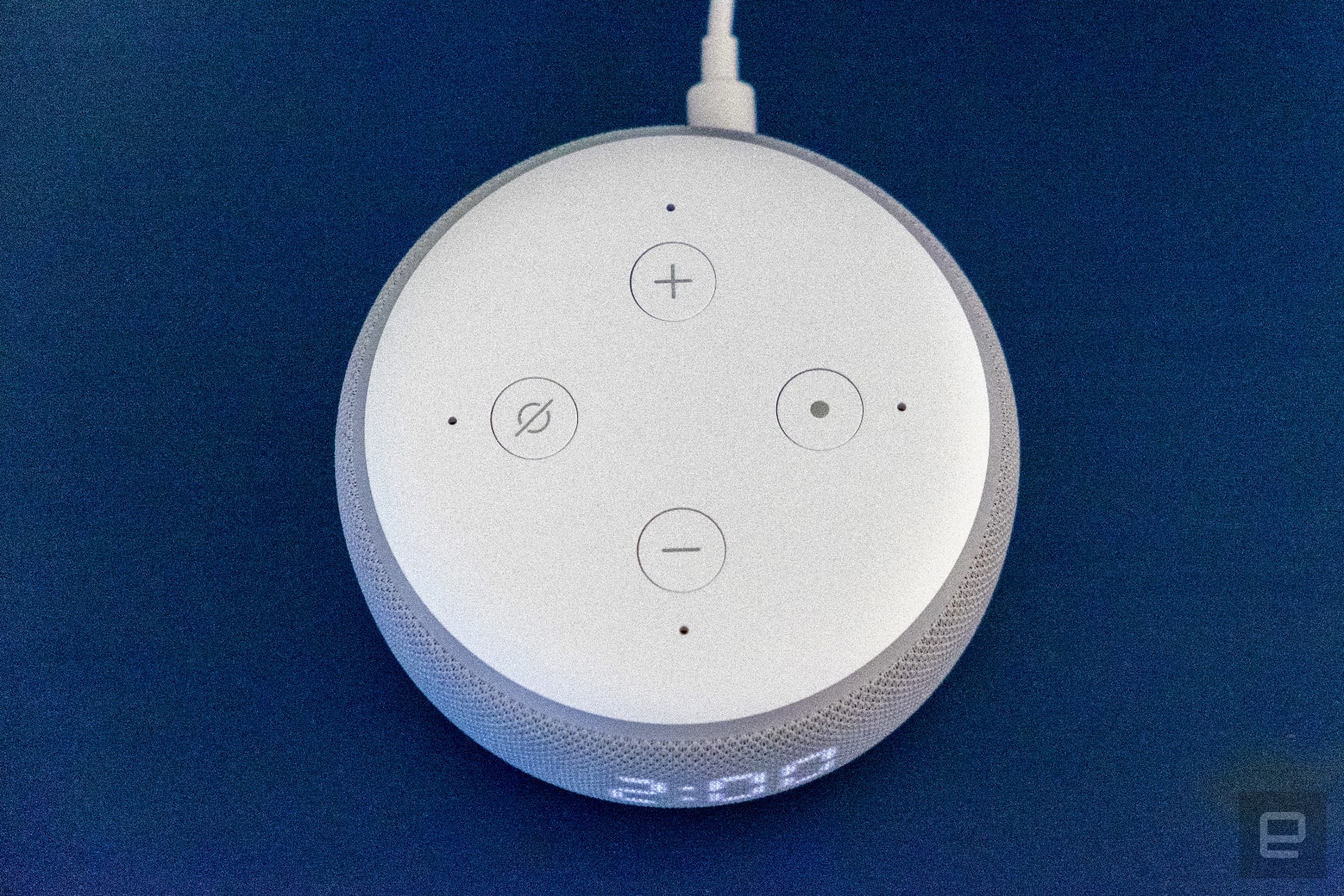In use
At this point, the capabilities of Alexa and Google Assistant are well known. To quickly recap, you can ask both speakers to control devices in your home, play audio, answer questions, give you info from your personal accounts (e.g., Google Calendar) and link up to third-party services that make these speakers even more capable.
Given how mature both platforms are, the real question when comparing the Nest Mini to its predecessor is how its new speaker sounds. Google says the Nest Mini has twice the bass as the original, something not terribly easy to measure. It does produce fuller sound than the original, but that’s not saying much. When I reviewed the Home Mini two years ago, I said that it was “severely lacking in the bass department and generally lacks the clarity you’d want for listening to music.” Harsh but true.
The Nest Mini, on the other hand, is much more pleasant. Doubling the bass doesn’t mean a ton when the original speaker had nearly no bass to speak of, but the Nest Mini’s sound profile is generally better balanced and less shrill. I didn’t consider the Home Mini a viable option for listening to music, but I’d be perfectly happy with the Nest Mini for casual playback in a small room. It’s certainly better than blasting music from your phone’s built-in speaker, which is what too many people do these days. Indeed, putting aside my music snob sensibilities for a moment, the Nest Mini will probably be fine for large swaths of the population. It’s surprisingly loud and keeps its clarity even at higher volumes, and that’s about all you can ask for from a tiny $50 speaker.
I can say the same about the Echo Dot. The Dot definitely has better bass performance than the Nest Mini, but at the expense of some precision in the mids and highs. Things can occasionally sound a bit muddier on the Dot, but it has a more pleasant thump. One thing is for sure: The Echo Dot that was introduced last year (and whose design is carried through to this model with the clock) is significantly better at music playback than the older models. Older Echo Dots sound terrible, full stop, while the new one redefined what I thought such a small speaker was capable of.
When doing some head-to-head comparisons, I thought the Nest Mini handled more complex arrangements better. A song like “Graffiti” by Chrvches has major bass, lots of high-frequency synth work, and a singer who hits some pretty high notes. Basically, there’s a lot going on here — and in that crowded soundscape, the Echo Dot came across a bit muddy. But on a more stripped-down track like “Appointments” by Julien Baker, the Echo Dot came across with a fuller, more true-to-life representation of the sparse vocals, piano, and electric guitar. The same can be said for a more robust, straightforward rock song like Death Cab for Cutie’s “To the Ground.”
Microphone performance is also worth mentioning, and the good news is that both speakers are pretty responsive, even when blasting music. I had to speak slightly louder than I expected to get both to reply, but once I adjusted I was able to get the speakers to pay attention without a problem. Google says that the Nest Mini has improved mics, but I can’t really tell the difference. The good news is that either way, you shouldn’t have a hard time getting the Nest mini or Echo Dot to hear you.





